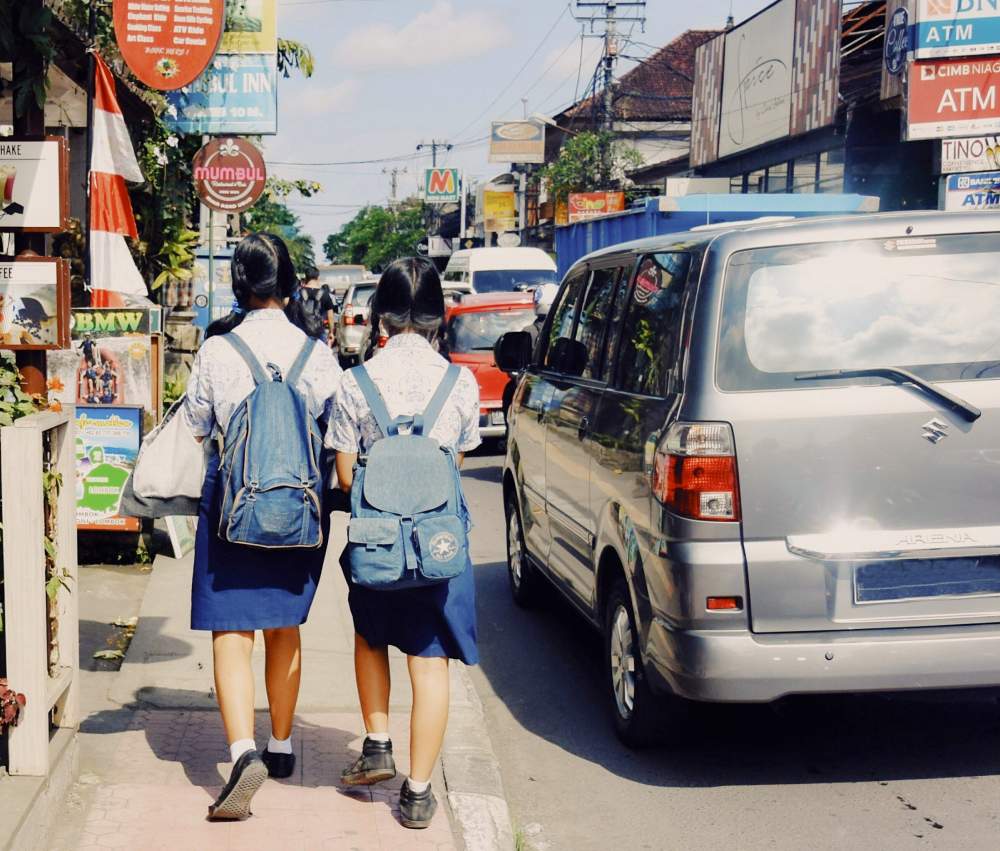Out in the rural farmlands of Abiansemal, south of Ubud, Astungkara Way invites people to try their hand at the most fundamental of human activities: farming. This unique, learning-based experience encourages people to immerse themselves into Bali’s agrarian way of life to understand what it means to be close to our source of food and to the cycles of nature.
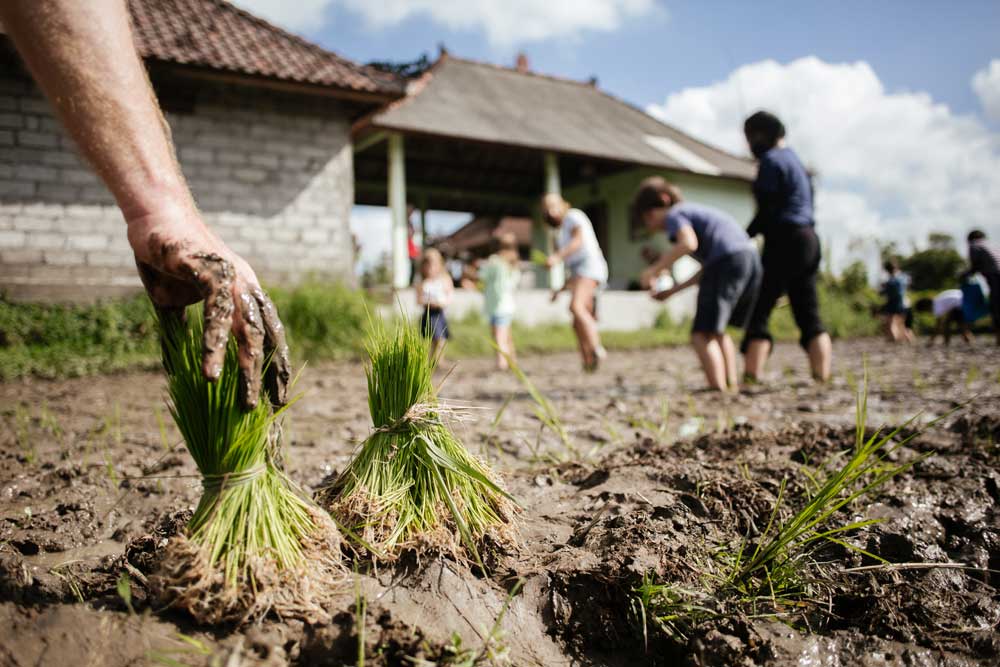
Back to the Roots
Do you know where the ingredients of your last meal came from? Or further still, what it would take to grow them? Like most of us, the answer is probably no. Our modern and urbanised lives have very much disconnected us from having a deep, meaningful interaction with our food and our natural world.
Farming is perhaps the best way to feel ‘plugged in’ to the surrounding ecosystem. To be sensitive to the seasons, to witness life emerging from the ground, knowing what makes the environment thrive, to feel and understand the workings of the nature’s processes — and, once again, be a part of it.
Working closely with Balinese farmers in the Subak Uma Lambing watershed, Astungkara Way champions regenerative agriculture, a method of farming aimed at reviving ecosystems; reutilising nature to restore much of the nutrients that has been lost through modern agricultural methods.
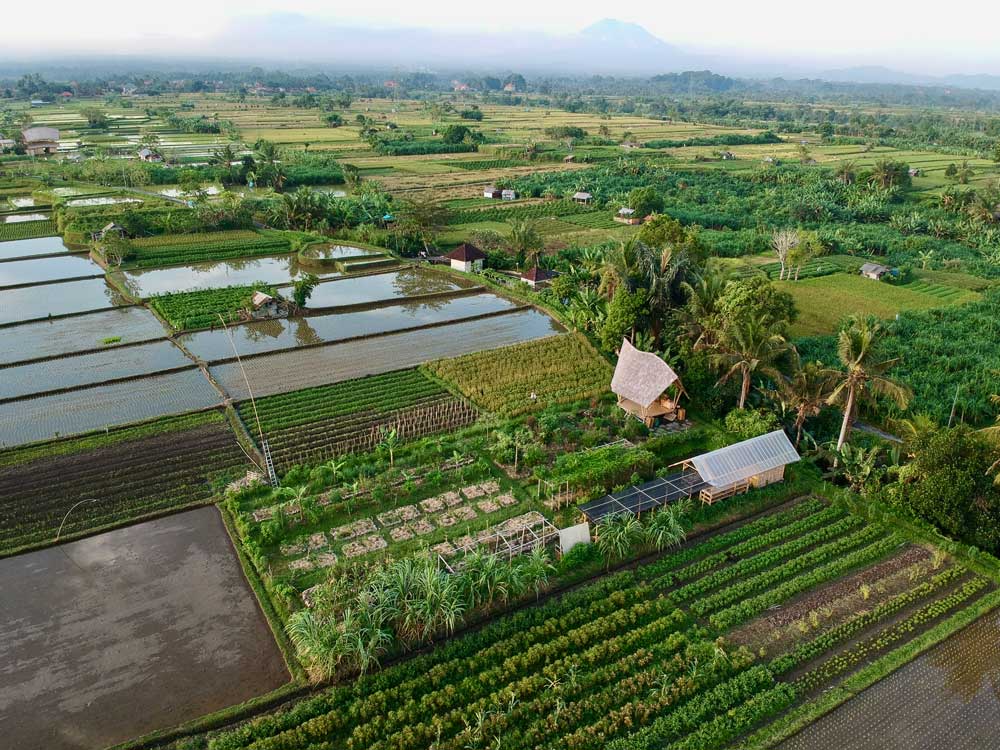
Modern farming practices are input-intensive; using chemical fertilisers and pesticides to encourage the growth of crops. This seed-focused approach ignores the needs of the soil, depriving it from its natural nourishment normally provided by organic matter cycled back into it through natural processes. This leaves soils degraded and eroded, essentially depleting it of the nutrients it needs to encourage healthy vegetation. Regenerative agriculture thus facilitates the rehabilitation of these soils.
Through practices and techniques like natural composting, reutilising farm waste, permaculture and no-tilling, top-soils are once again provided with nourishment. This has a multitude of benefits, including improved nutritional value of organic crops, ensuring longterm vitality for Bali’s farmlands, and even increasing the soil’s ability for biosequestration and carbon storage. These methods are a return to age-old practices essentially, used long before modern monoculture agriculture that have had chronic negative effects on our ecosystems.
In parallel to Astungkara Way’s mission to make regenerative agriculture more widespread amongst Balinese farmers, the organisation wants to expand beyond the agricultural echo chamber and reach out to those whose lives are normally disconnected to the natural environment. In this day and age, that’s most of us.
Toes in the Mud
Through Astungkara Way’s ‘Half-Day Farm Tour’, people are invited to learn and discover the basics of agriculture alongside the farmers of the lush Abiansemal countryside.
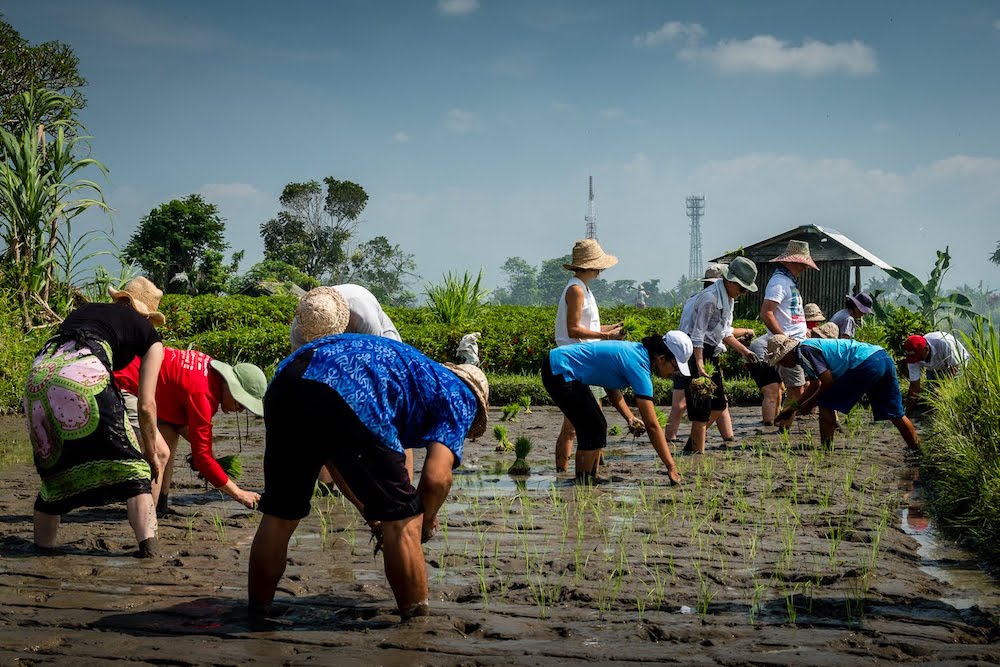
It’s an opportunity to engage with the source of food, with nature and fellow Balinese farmers. Bali’s culture and identity was born from a deeply agrarian society, and so to be out in the fields for a day is to experience the roots of the local culture.
The experience takes place at Astungkara Way’s Regenerative Farming Learning Center in Sibang Kaja, where they have built a beautiful bamboo headquarters in the centre of the farmlands. The day begins with a blessing: collecting the followers for the canang sari offering around the farm, which is then used for a blessing at the shrine of the bale subak. This is done by the Balinese farmers themselves every morning and perfectly encapsulates Bali’s tri hita karana philosophy, which advocates each person’s relationship with nature, with God and with each other to ensure harmony and balance.
Then you’ll get stuck into the farm work, and as you can imagine, this involves getting your hands (and feet) dirty!
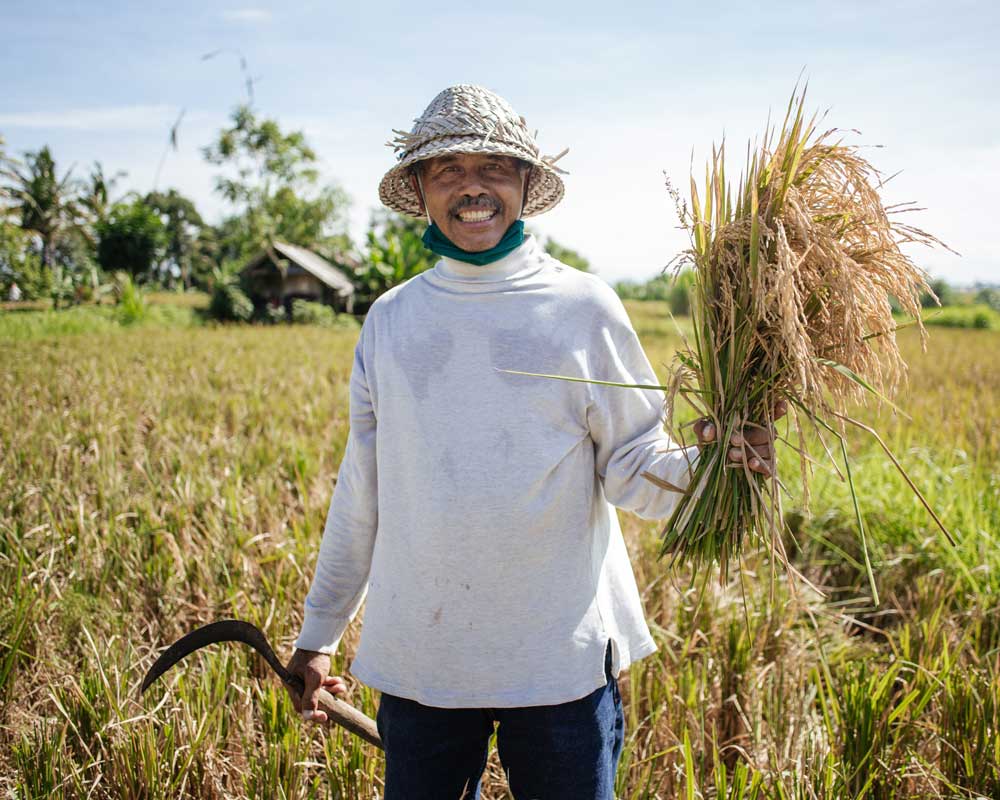
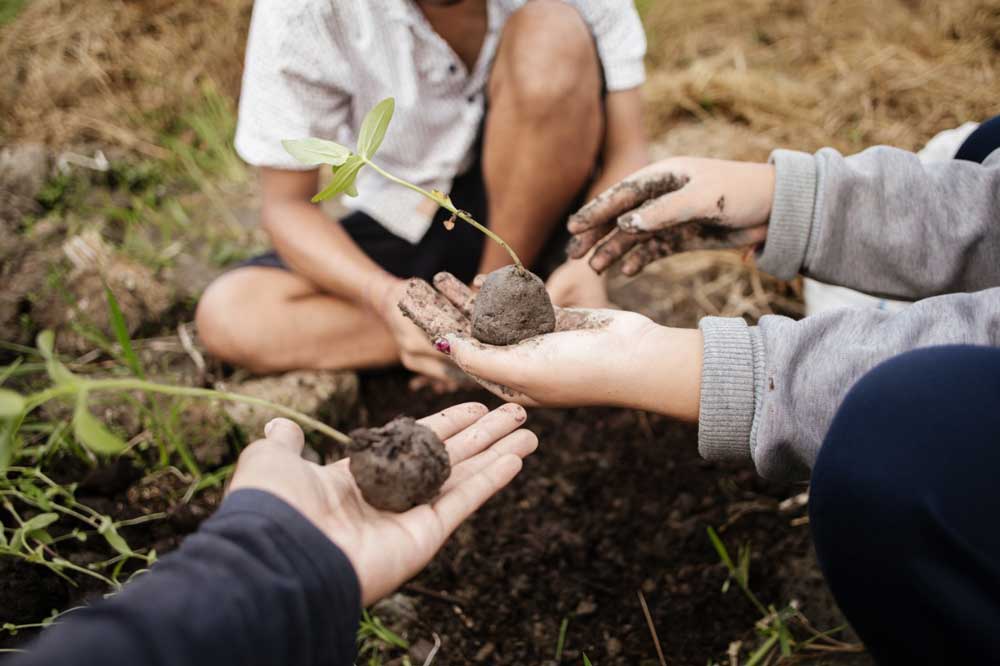
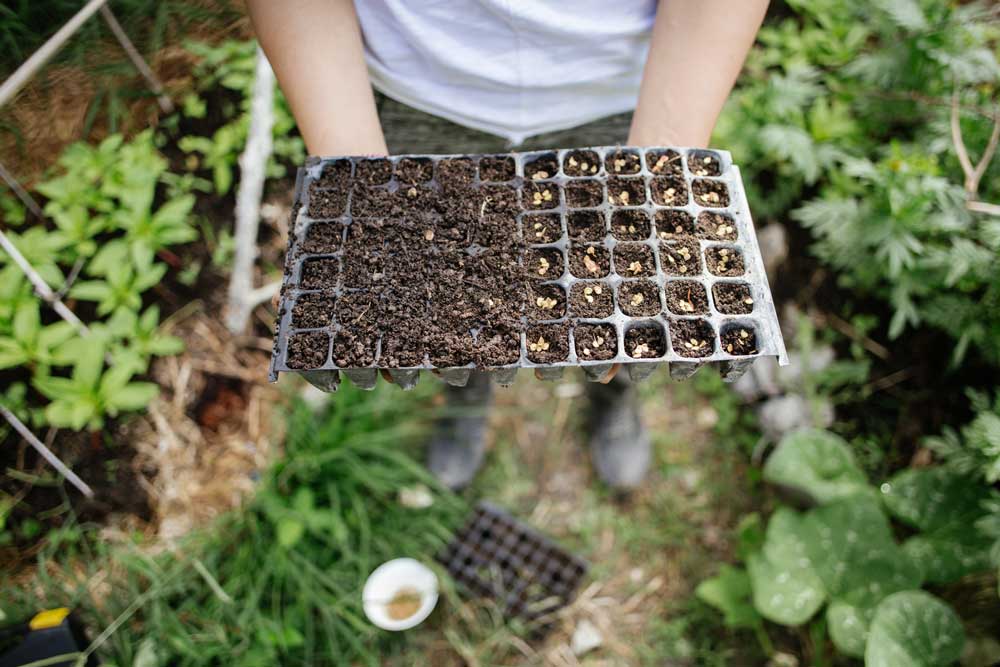
Depending on the season, you’ll be guided through a range of different traditional farming techniques, from propagating plants, to composting and mulching, soil preparation, planting seeds and harvesting. The fundamentals of regenerative agriculture are put into practice through the activity: it is experiential learning at its best, both for adults and children.
Knowledge and skills are weaved into the time out in the fields, guided by the Astungkara Way team — young Balinese passionate about reviving their farmlands. You’ll learn about the difference between perennial and annual plants, the importance of traditional sources of food, of the variety of crops from basic rice to local superfoods like moringa.
Understanding what grows here, and how, is an eye-opening and awareness building practice, fostering a deeper appreciation for where our food comes from. It’s a re-engagement with the natural world. What could be more connected than having your toes in the mud as you plant seeds deep into the earth?
Back at the bamboo headquarters, a delicious lunch is prepared for you by Ibu Tatik from the local community, using the organic ingredients from the farm that you’ve just been working on. Nothing is more satisfying than savouring the food that you’ve harvested, from the farm that you’ve just worked on! Then, a session of yoga nidra is practiced together, a restful way to close off a morning of working under the sun.
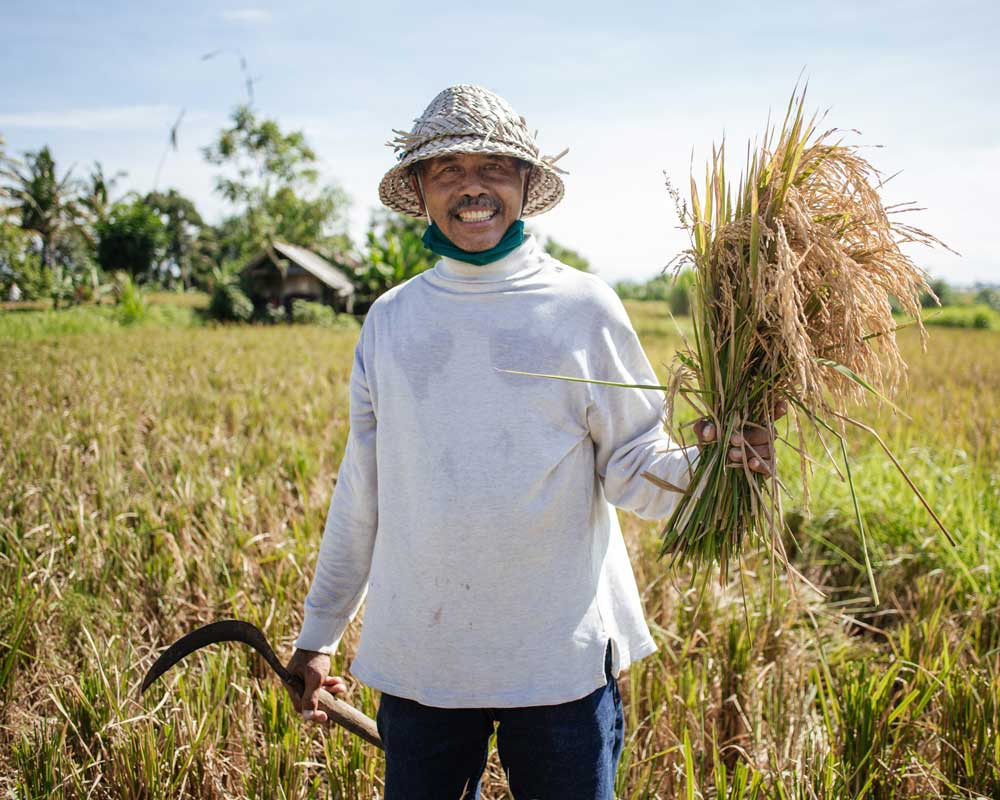
The ‘Half Day Farm Tour’ takes place from 8.30am to 1.30pm, and is great for both adults and children. It is an opportunity to understand Bali’s agrarian way of life, to learn this fundamental human skill, and cultivate a connection with nature again. For those who want to immerse themselves for longer, Astungkara Way also offers an Overnight Farm Experience and Weekend Reconnection, where you can spend the night in the serene rice paddies and also get a taste of the ‘Astungkara Trail’, a north-south coast trail into the heart of Bali with a purpose to catalyse regeneration on the island.
For anyone who wants just a taste of the experience can join the weekly gotong royong (communal work) activity for free, available every Wednesday between 4pm and 6pm at Sibang Kaja, Abiansemal.
For more information about Astungkara Way, or to book your own farm experience, connect with them here:
contact@astungkaraway.com
Instagram: @astungkarawa
astungkaraway.com



